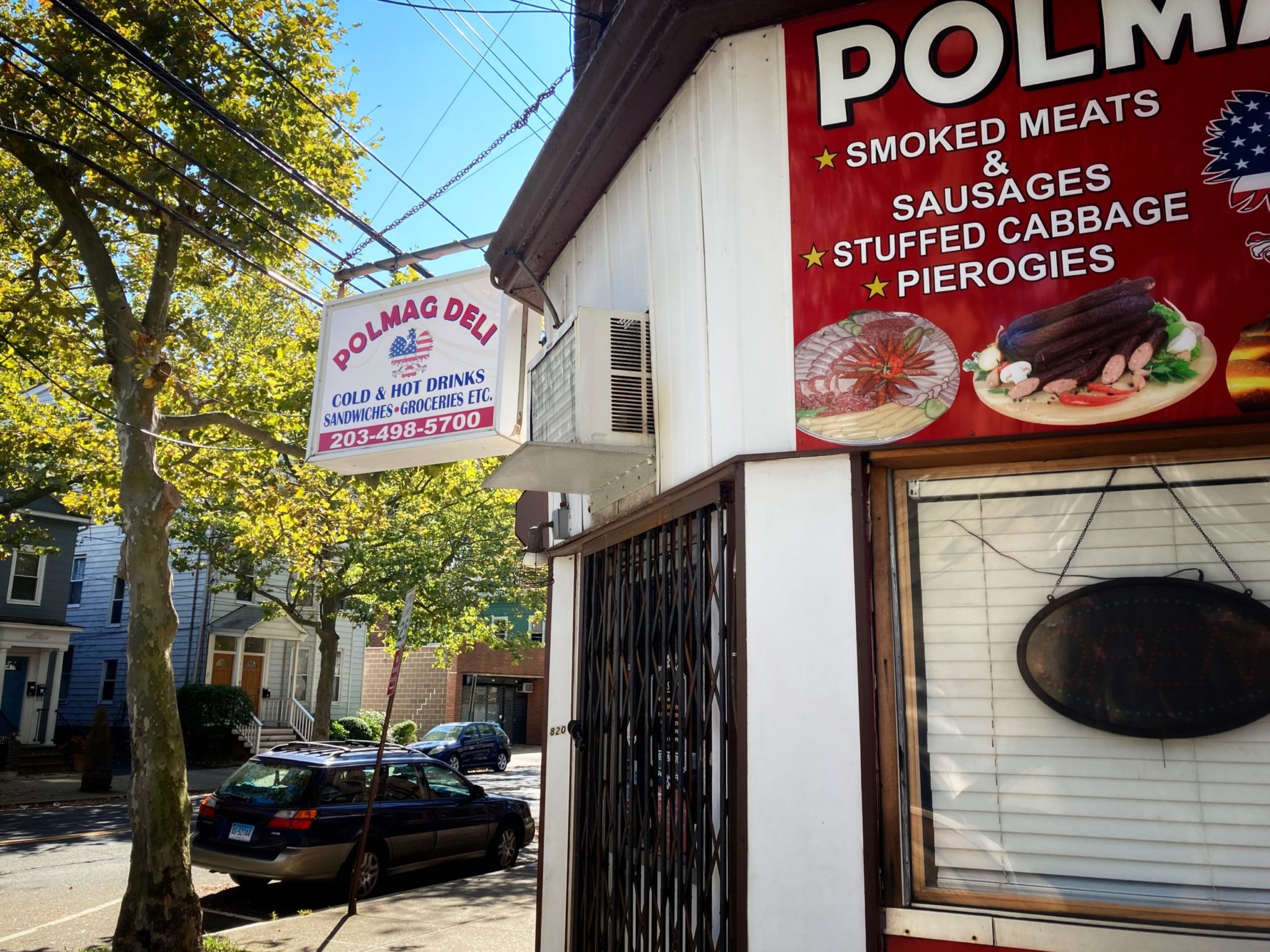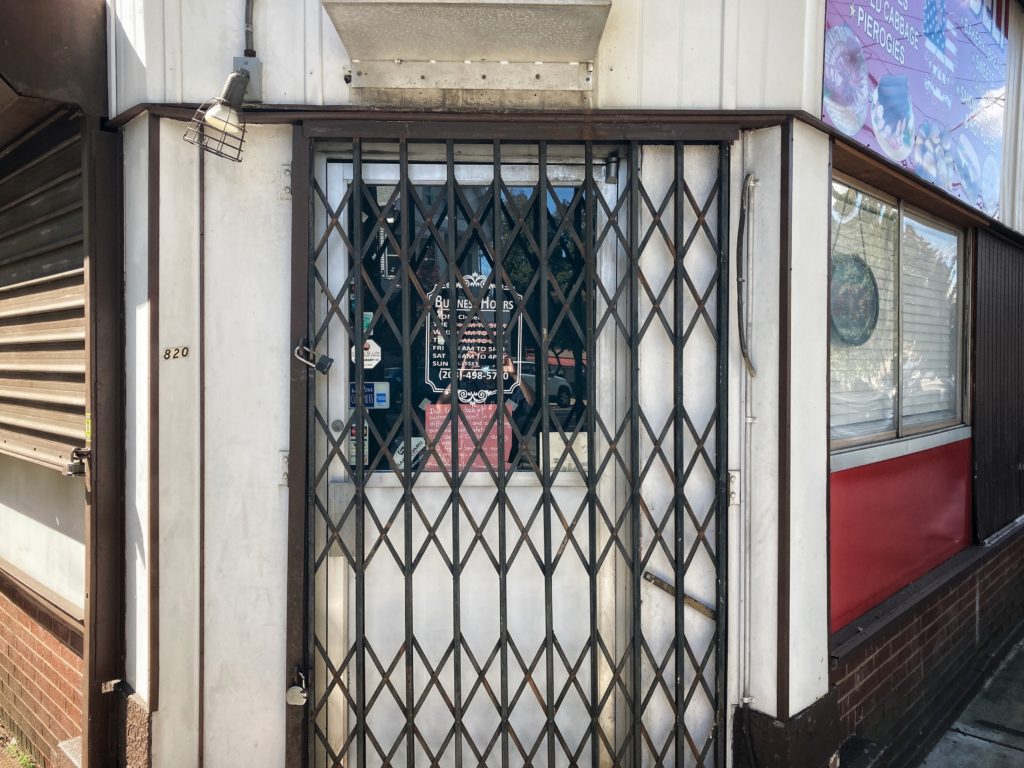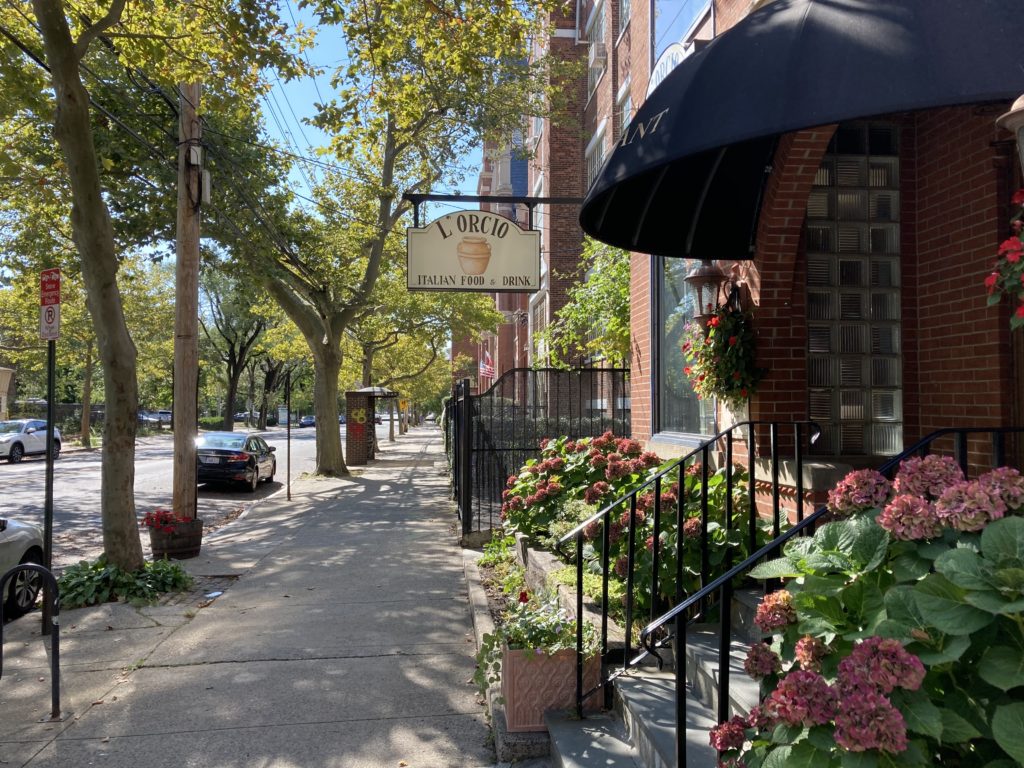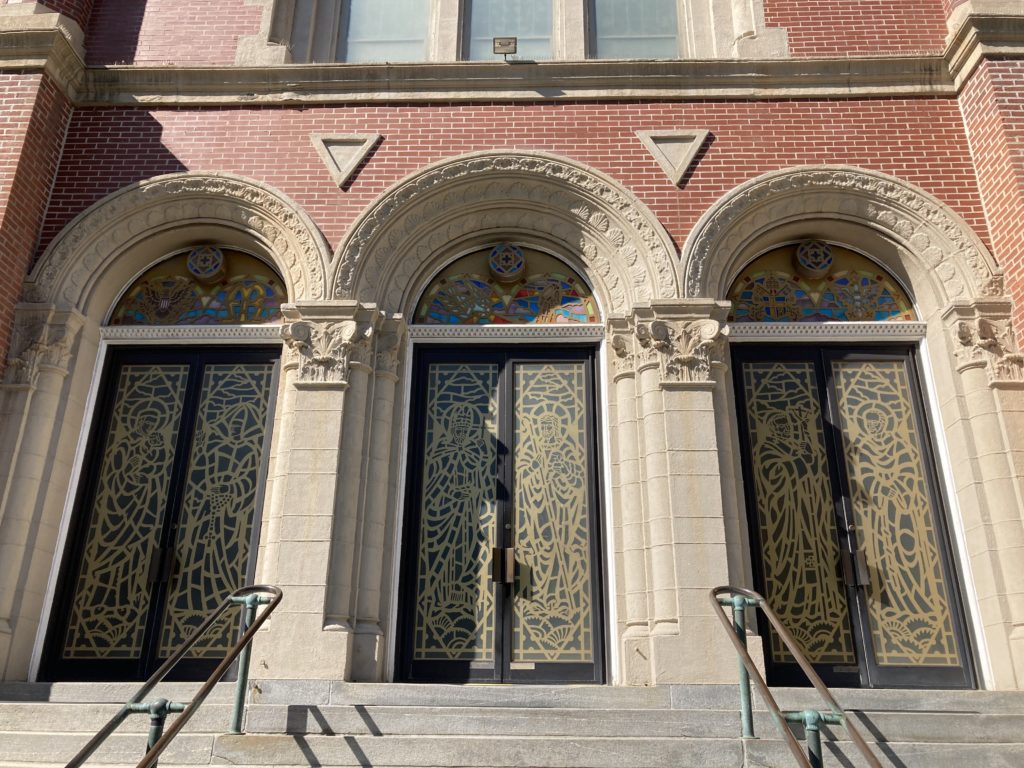
Owen Tucker-Smith, Contributing Photographer
On the corner of State Street and Pearl Street stands a stout white-and-red-painted deli. Amid a block of restaurants, Polmag Deli’s brick facade blends into its surroundings. The shop’s exterior features images of the Polish delicacies it provides — smoked meats, sausages, stuffed cabbage, pierogies, breads, sweets and sandwiches. On a Saturday morning, one can wait outside the store and watch customers — some Polish, some not — trickle in and out with their meats and sandwiches.
But during the week, the doors to the shop are barred shut, and the Polish deli disappears from the vibrancy of State Street. The pandemic has hit the store hard, said Polmag owner Magdalena Stradowski. Polmag has struggled to hold on financially, not only to its place as a deli in New Haven, but also as one of the last remaining Polish institutions on State Street.
In the past, Stradowski would not have been alone.
“There was a Polish American club down the street,” Stradowski said. “That closed. There was another Polish store nearby. That closed. In the Polish church, they would do receptions, organized dances and everything. Now there is no Polish community big enough to attend, so they stopped too.”
According to the New England Historical Society, the 19th century saw Polish immigrants arriving in Connecticut to flee the poverty and mass starvation prevalent in Europe at the time. While most came to New England to work in textile mills, some of these immigrants eventually resettled to Connecticut cities and farms after experiencing the dire conditions of New York’s tenements.
Polish immigration surged in the early 20th century. Between 1880 and 1920, the number of Polish immigrants in New Haven increased from 52 to 3,009. In 1908, The Hartford Times reported that “the bulk of the Poles of Connecticut have settled in Hartford and New Haven counties” and noted that “within a decade the Polish census of the state has probably expanded about 400 per cent.” The Times predicted that the influence of Poles in cities like New Haven was set to grow rapidly.
Connecticut’s Polonia, as the growing collection of Polish institutions became known, blossomed in New Haven, with the city’s Polish population multiplying over 50-fold in the four decades leading up to 1920. In 1896, a group of New Haven Polish Catholics created the St. Stanislaus Society in an effort to form their own parish. Their parish found its home in 1913 in the abandoned St. John’s Episcopal Church building at 790 State St. According to Thomas J. Farnham’s “Upper State Street 1640-1982,” the establishment of the parish brought over 1,000 Polish families to the State Street area in the following years. Now, the church offers two of its four Sunday masses in Polish.
Jola Fekieta came to the United States from Poland 28 years ago and now helps lead Saturday School at St. Stanislaus.
“I have been attending the church since the first day that I came,” she said. “It has always been supportive. This is where I got married, where my kids were baptized and went to First Communion. My daughter and son had their confirmations there.”
Yet Fekieta noted that fewer and fewer people attend the church every year. Stradowski agreed, saying that the decline in attendance mirrors the decline of New Haven’s Polish community.
“20 years ago, there was a much bigger population of Poles around here,” she said. “You can tell just based on the church. It was always full then. But then the older generation passed away, and the younger ones moved away from the area. We used to have a Polish Catholic school here by the church. A lot of my customers attended that school. It is no more.”
Situated by the parish is the former St. Stanislaus school, first established in 1923, a towering figure on State Street with red-brick walls, a grey stone frame and a plastered sign that announces the school that once was. But a clearly newer sign hangs below, announcing “Booker T. Washington Academy. Work Hard. Get Smart.” The New Haven charter school rents the space from the church and serves children from throughout the city.
Despite the steady disappearance of New Haven’s Polish community on State Street, the community remains a strong presence in other parts of the state. Half an hour from New Haven, New Britain is home to a vibrant “Little Poland” of its own.
In 2007, New Britain residents and business owners came together to form the Polonia Business Association. Their advocacy led to the official designation of a Broad Street area as “Little Poland.” A century ago, 25 percent of the city was Polish and settled on Broad Street, New Britain’s version of State Street. Now, Connecticut Humanities estimates that 70 percent of the 100 businesses on Broad Street are Polish-owned.
Like in New Haven, a Polish Catholic church looms over New Britain’s Polish population. The Sacred Heart church hosts three English and three Polish masses and has just celebrated its 150th anniversary. Parish priest Daniel Plocharczyk said that the city’s Polish community is more vibrant than ever.
“Children have classes in Polish on Saturdays,” he said. “Some of them were born in Poland, but when they come here, they learn the English language. I say, don’t ever forget how to speak Polish. You see some of our little kids running around here, they’re speaking Polish like it’s downtown Warsaw.”
Despite the energy of New Britain’s Polish community, the church’s school is in its last year — a loss that New Haven’s State Street has gone through in the past. But the Saturday School program will live on, and it serves to keep Polish children in the city close to their roots.
Fekieta told the News that her uncle, whom her family had come to stay with in New Haven, had seven kids, each of whom proceeded to get married and leave New Haven. She said her cousins’ departures felt representative of the greater New Haven Polish exodus.
Stradowski suggested that New Haven can be an expensive place to live and cited that as a possible reason so many Poles have left.
“What it comes down to is the cost of life, I believe,” she said. “Especially in New Haven, the taxes get to a lot of people. I have a lot of customers from Branford and Fair Haven, and they move out of the state. I think it’s the cost of living.”
Fekieta also said that New Haven’s Polish community was in some ways driven by Polish immigration. Now, Poland has more opportunities, she said, and coming to America is no longer the dream it used to be. In the 2000 census, just 5 percent of Poles living in the United States were immigrants, meaning the inflow of Polish migration to America has slowed.
And so Stradowski is left to herself in her corner store on State Street. While she has been in America for 22 years, she only opened Polmag four years ago. When Wozniak Deli, a store on Grand Avenue, just off State Street, closed just under a decade ago, Stradowski was concerned by the emptiness it left in the local Polish food scene, so she decided to start her own deli.
But now, in the middle of a pandemic, she is struggling to keep the last remnants of State Street’s former ‘Little Poland’ up and running.
“Life is getting very expensive,” she said. “It’s getting hard to survive. But I’m determined. I’m going to keep going — I will keep going with my business. I used to be open all week, and now I’m only open two days. I’m just holding on.”
The Polmag Deli is currently operating on a reduced schedule: open only on Fridays from 10 a.m. to 5 p.m. and Saturdays from 10 a.m. to 4 p.m.
Owen Tucker-Smith | owen.tucker-smith@yale.edu
Razel Suansing | razel.suansing@yale.edu











